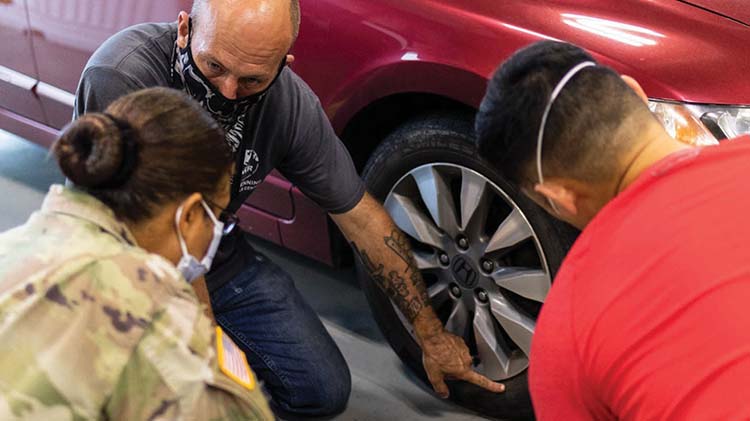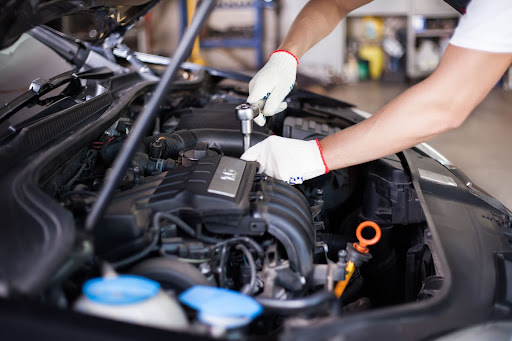All Categories
Featured
The surge of electrical vehicles (EVs) has produced considerable improvements in sustainable transport, however it additionally offers a growing issue: what happens to EV batteries when they are no more useful? These batteries, which include beneficial products such as cobalt, nickel, and lithium, can not just be thrown out. Reusing them is vital to minimize ecological injury and recoup important resources. Service centers have actually stepped right into this space, offering electric lorry battery reusing solutions to satisfy the needs of eco-conscious EV owners.
![]()
Environmental Management: Avoiding harmful chemicals from contaminating dirt and water. Source Recovery: Removing reusable materials like lithium and cobalt to decrease the requirement for brand-new mining procedures. Power Effectiveness: Recycling makes use of less power than sourcing raw materials, adding to a reduced carbon footprint. As countless EV batteries are anticipated to get to completion of their lifecycle in the coming years, the requirement for recycling options has actually never ever been greater.
Collection and Safe Storage: Lots of service center collect utilized EV batteries from customers and save them securely until they can be transported to reusing facilities. Collaborations with Recyclers: Shops commonly team up with specialized recycling business that extract and repurpose valuable products. Repurposing Initiatives: Some batteries, although no more ideal for cars, can be repurposed for stationary power storage solutions, a solution some repair service shops help with. 3. Partnerships with Suppliers and Recycling Programs. To streamline the recycling procedure, fixing shops commonly partner with EV producers and third-party recyclers. Instances consist of:
Supplier Programs: Brands like Nissan and BMW have executed battery recycling campaigns, utilizing certified fixing stores to collect and manage used batteries. Third-Party Recyclers: Companies like Redwood Products and Li-Cycle deal with independent repair service shops to reuse batteries from various EV brand names. These partnerships guarantee that recycling is dealt with properly and effectively, with marginal environmental impact.
Ease: Clients can reuse batteries locally without navigating complicated recycling networks. Cost Cost savings: Some stores provide trade-in credit ratings or price cuts on replacement batteries when consumers recycle their old ones. Sustainability Guarantee: Partnering with respectable shops warranties that batteries are reused in conformity with ecological policies. 5. Difficulties in Expanding Recycling Solutions. Despite progression, there are difficulties to making battery reusing widely readily available:
Training Requirements: Taking care of EV batteries securely requires specialized understanding and devices, which not all service center have. Price of Recycling: Carrying and refining batteries can be costly, presenting a barrier for smaller sized shops. Restricted Facilities: In some regions, accessibility to recycling facilities is still underdeveloped. Federal governments and manufacturers are working to attend to these problems via motivations, funding, and research study into much more effective reusing technologies.
![]()
Verdict. Yes, service center supplying electric automobile battery recycling are coming to be an important part of the EV ecological community. By working together with producers, recyclers, and ecological programs, these companies are helping to ensure that the transition to electrical transportation is as lasting as feasible.
For EV proprietors, choosing service center with recycling capabilities is not just a practical choice yet additionally an accountable one. Together, fixing makers, stores, and consumers can create a sustainable future where EV batteries are not wasted yet repurposed, reused, and recycled for the advantage of the earth.

- The Relevance of Reusing EV Batteries. Unlike standard car batteries, EV batteries are complex and large, with special recycling requirements. Proper recycling is important for numerous factors:
Environmental Management: Avoiding harmful chemicals from contaminating dirt and water. Source Recovery: Removing reusable materials like lithium and cobalt to decrease the requirement for brand-new mining procedures. Power Effectiveness: Recycling makes use of less power than sourcing raw materials, adding to a reduced carbon footprint. As countless EV batteries are anticipated to get to completion of their lifecycle in the coming years, the requirement for recycling options has actually never ever been greater.
- How Repair Shops Contribute to Battery Recycling. Repair stores play an essential role in the EV ecosystem by offering efficient and accessible recycling alternatives. Below's how they support sustainability:
Collection and Safe Storage: Lots of service center collect utilized EV batteries from customers and save them securely until they can be transported to reusing facilities. Collaborations with Recyclers: Shops commonly team up with specialized recycling business that extract and repurpose valuable products. Repurposing Initiatives: Some batteries, although no more ideal for cars, can be repurposed for stationary power storage solutions, a solution some repair service shops help with. 3. Partnerships with Suppliers and Recycling Programs. To streamline the recycling procedure, fixing shops commonly partner with EV producers and third-party recyclers. Instances consist of:
Supplier Programs: Brands like Nissan and BMW have executed battery recycling campaigns, utilizing certified fixing stores to collect and manage used batteries. Third-Party Recyclers: Companies like Redwood Products and Li-Cycle deal with independent repair service shops to reuse batteries from various EV brand names. These partnerships guarantee that recycling is dealt with properly and effectively, with marginal environmental impact.
- Advantages for EV Proprietors. Repair shops supplying battery recycling solutions provide significant benefits to EV owners:
Ease: Clients can reuse batteries locally without navigating complicated recycling networks. Cost Cost savings: Some stores provide trade-in credit ratings or price cuts on replacement batteries when consumers recycle their old ones. Sustainability Guarantee: Partnering with respectable shops warranties that batteries are reused in conformity with ecological policies. 5. Difficulties in Expanding Recycling Solutions. Despite progression, there are difficulties to making battery reusing widely readily available:
Training Requirements: Taking care of EV batteries securely requires specialized understanding and devices, which not all service center have. Price of Recycling: Carrying and refining batteries can be costly, presenting a barrier for smaller sized shops. Restricted Facilities: In some regions, accessibility to recycling facilities is still underdeveloped. Federal governments and manufacturers are working to attend to these problems via motivations, funding, and research study into much more effective reusing technologies.

- The Future of EV Battery Recycling. As the EV market remains to grow, the role of fixing shops in battery recycling will certainly become much more vital. Regulative needs are motivating makers and fixing networks to establish extensive recycling systems. Emerging technologies are likewise enhancing the efficiency of product recuperation, making reusing more cost-effective and extensively available.
Verdict. Yes, service center supplying electric automobile battery recycling are coming to be an important part of the EV ecological community. By working together with producers, recyclers, and ecological programs, these companies are helping to ensure that the transition to electrical transportation is as lasting as feasible.
For EV proprietors, choosing service center with recycling capabilities is not just a practical choice yet additionally an accountable one. Together, fixing makers, stores, and consumers can create a sustainable future where EV batteries are not wasted yet repurposed, reused, and recycled for the advantage of the earth.
Latest Posts
Picking the Right Roof Shade: Influence On Energy Performance
Published May 21, 25
1 min read
Check Out Brake Repair & More: Full Auto Care Solutions from Montclare Auto Repair
Published May 21, 25
1 min read
Searching for Budget-Friendly Oil Change Solutions in St. Louis? Car-X Delivers Quality Care
Published May 20, 25
1 min read
More
Latest Posts
Picking the Right Roof Shade: Influence On Energy Performance
Published May 21, 25
1 min read
Check Out Brake Repair & More: Full Auto Care Solutions from Montclare Auto Repair
Published May 21, 25
1 min read
Searching for Budget-Friendly Oil Change Solutions in St. Louis? Car-X Delivers Quality Care
Published May 20, 25
1 min read